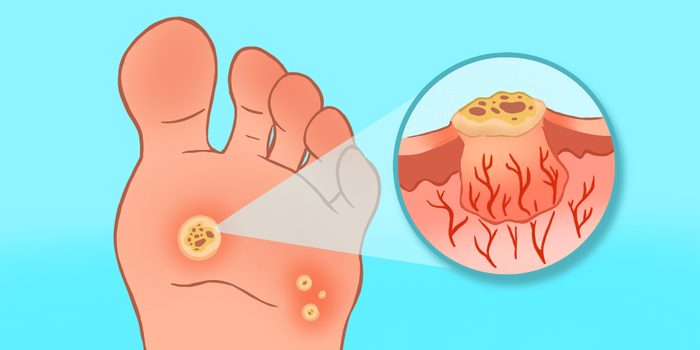Demystifying Plantar Warts

Although plantar warts are usually painless, they can become irritating or painful with pressure. Since a Glen Burnie plantar wart can be stubborn to treat, your podiatrist may use advanced treatments like cryotherapy to remove it and improve your symptoms.
An overview of plantar warts
Plantar warts are small benign growths on the heels and balls of your feet. You can get them if you are exposed to human papillomavirus (HPV), which gets into your skin through a wound or crack in your skin. HPV is very contagious, so you are highly likely to get it if you walk barefoot in a communal pool deck, shower, or in areas where the virus thrives. You have a high risk of getting plantar warts if your immune system is weak, especially in children. In most cases, plantar warts rarely cause severe complications and often resolve without treatment.
Factors contributing to the development of plantar warts
Plantar warts are a result of the human papillomavirus. They may not manifest for weeks or months after exposure to the virus. Viral infections are highly contagious, and plantar warts are no exception. An epidemic of plantar warts may break out among people who engage in activities that require bare feet, such as yoga, those who share a gym and other athletic facilities, and even home showers. Plantar warts are more prevalent in children as they have a weaker immune system. If you take immunosuppressive medications or corticosteroids or have HIV/AIDS, you may have a higher risk of developing plantar warts.
Treatment options for plantar warts
Most warts resolve within two years without treatment. However, you may require medical attention if they cause irritation or pain. Several home remedies for removing plantar warts include banana peels, an OTC freezing spray to destroy the wart tissue, and duct tape. These approaches are moderately successful and take months to see significant results. The Annapolis Foot and Ankle Center offers minimally invasive treatments for plantar warts with a higher chance of success. They include:
- Cryotherapy
This procedure freezes warts with liquid nitrogen, destroying their structure and eliminating them. Your provider applies it gently on the wart and allows it to blister and slough off within a week. Combining salicylic acid with cryotherapy is even more effective, although you may still need several treatment sessions.
- Trichloroacetic acid and salicylic acid
Your provider applies a controlled amount of salicylic acid to the wart, dissolving it bit by bit. The acid also triggers your immune system to attack the underlying infection. You may need several treatments, and your provider may suggest a stronger trichloroacetic acid if warts don’t disappear.
- Lasers
Your provider may transmit a beam of laser energy to burn the wart’s blood vessels, causing it to die and fall off.
- Minor surgery
Your physician may cut away the plantar wart using a scalpel to prevent them from growing back.
Your doctor discusses the available treatment before suggesting the most effective option.
If you have an irritating plantar wart, call the Annapolis Foot and Ankle Center office or book your spot online for treatment.

